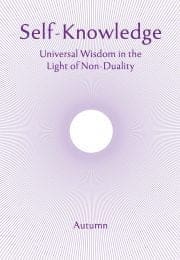Liberation and Action
The Thousand Teachings of Shankara, Metrical Part, Chapter One
Shankara, the great philosopher-sage who formulated the non-dual teachings, says in many of his writings that a seeker of liberation should give up action. Taken out of context, this could be misunderstood. The essential idea is that no action can result directly in liberation. The Sanskrit word ‘karma’ can be translated into English as ‘action’ or, more generally, as ‘the principle of cause and effect’, and it usually includes both aspects. Cause and effect apply in the phenomenal world, but not in the ultimate Reality. Therefore, Self-knowledge, liberation, cannot be the result of any action; the transcendent is unrelated to any causal process.
This does not mean that our actions are insignificant or that a seeker can be careless. Right action, dharma, is the foundation of inner discovery and has to be sustained throughout. The law of cause and effect is inescapable in the phenomenal world. To ‘forgive a wrong’ means to nurture no anger or hatred towards the one who committed it, and it is the most beneficial attitude for one who has been wronged; but nothing can undo or prevent the consequences of an act for the actor. Our actions and choices so far in life have led us to where we find ourselves now. Actions affect our state of mind, and vice versa, and it is states of mind that hide the truth from us. So, on the way to Self-discovery, our actions must be considered and managed carefully.
The practice of dharma brings about mental clarity, allowing one to contemplate and affirm the teachings. In this sense, right action is a stage on the path to Self-knowledge. But the necessary attention to right action should not lead us to forget that no action can be the immediate cause of liberation. If we believe that Self-knowledge could be the result of actions, we have misunderstood the nature of the Self, which is the absolutely Real, beyond appearances and change. And misunderstanding of Self is the primary obstacle on the way to Self-knowledge.
Shankara lived around the eighth century of the common era in what is now India, where priests taught that rituals and ceremonies were the necessary and effective means to the highest goal of life. Because these views were widespread and influential, Shankara often had reason to debate against them. Once non-duality has been understood in principle, it would be a wrong affirmation to engage in ceremonial actions in pursuit of self-realisation.
Does this mean that practices such as study, reflection and meditation are actions which should also be abandoned? This is a delicate point to be considered carefully by students of non-duality. Shankara distinguishes between two types of aspirants.
Subscribe or enrol for free guest access to read all of this article and Self-Knowledge online.
Already subscribed or enrolled? Log in:


